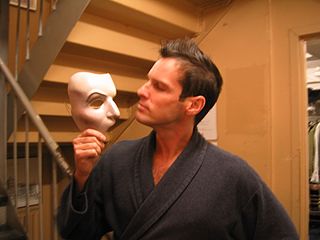A Quote by Hugh Jackman
I've never heard my dad say a bad word about anybody. He always keeps his emotions in check and is a true gentleman. I was taught that losing it was indulgent, a selfish act.
Related Quotes
Nobody even mentioned the word losing, losing games. We know we've been a losing franchise. He just wanted to say something back like he's always running his mouth. That's what he does. He runs his mouth all the time. Nobody was blaming him for anything. For him to come back at me was a personal attack. I feel that if there is anything that he is unsure about, tell him I would be more than happy to say it in his face, or any kind of other way, that would make him understand.
One of the things that I find most incredible about dad is the third act of his life.After all he accomplished in his professional career and what he's given for his country, at the point in his life where he's faced adversity, losing a son, having a helicopter crash, having a stroke, and what he's accomplished in this third act in his life, I find quite extraordinary.
To be taught to read—what is the use of that, if you know not whether what you read is false or true? To be taught to write or to speak—but what is the use of speaking, if you have nothing to say? To be taught to think—nay, what is the use of being able to think, if you have nothing to think of? But to be taught to see is to gain word and thought at once, and both true.
A sentimentalist is one who delights to have high and devout emotions stirred whilst reading in an arm-chair, or in a prayer meeting, but he never translates his emotions into action. Consequently a sentimentalist is usually callous, self-centred and selfish, because the emotions he likes to have stirred do not cost him anything.
Paradigms power perception and perceptions power emotions. Most emotions are responses to perception - what you think is true about a given situation. If your perception is false, then your emotional response to it will be false too. So check your perceptions, and beyond that check the truthfulness of your paradigms - what you believe. Just because you believe something firmly doesn't make it true. Be willing to reexamine what you believe.



































